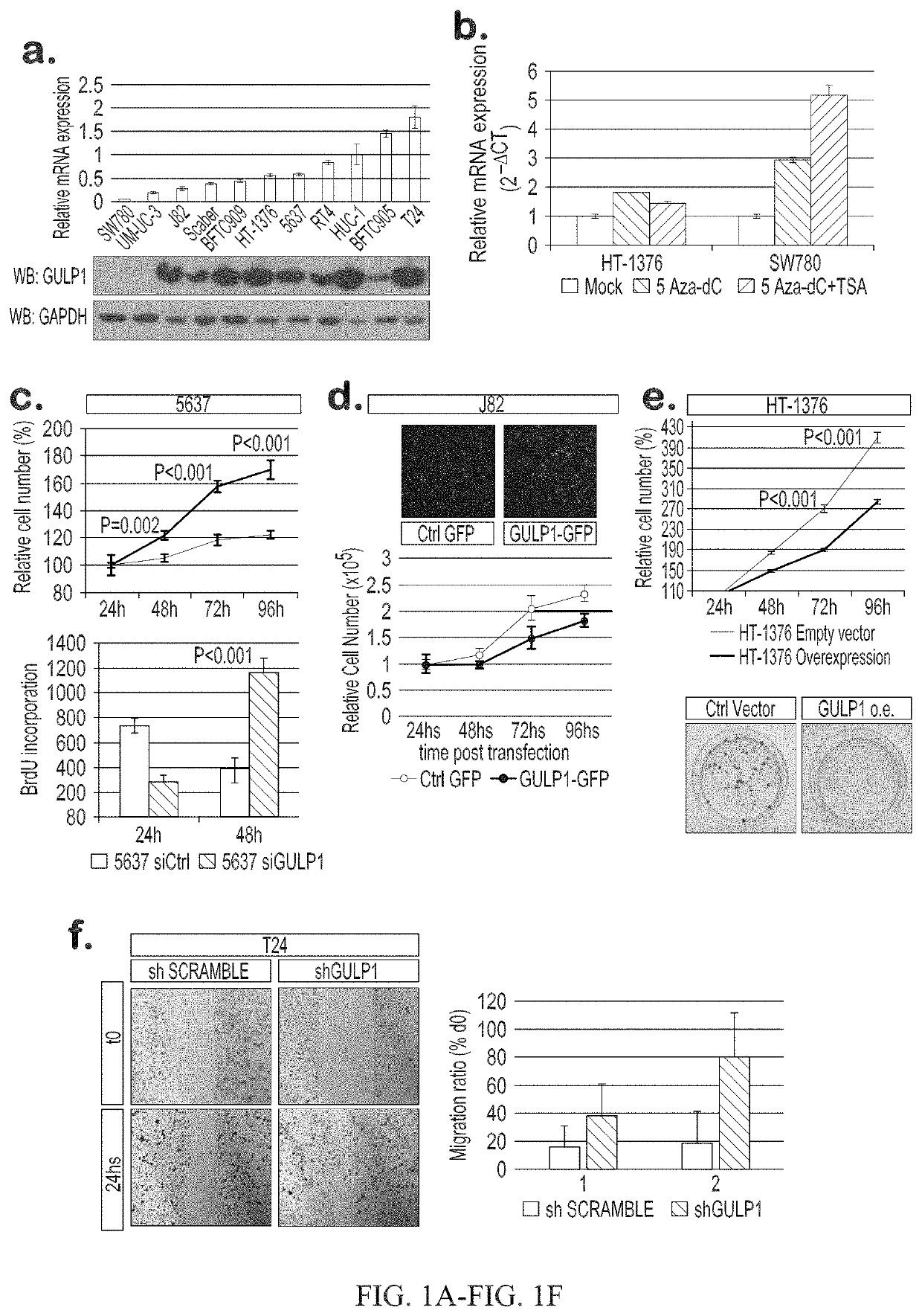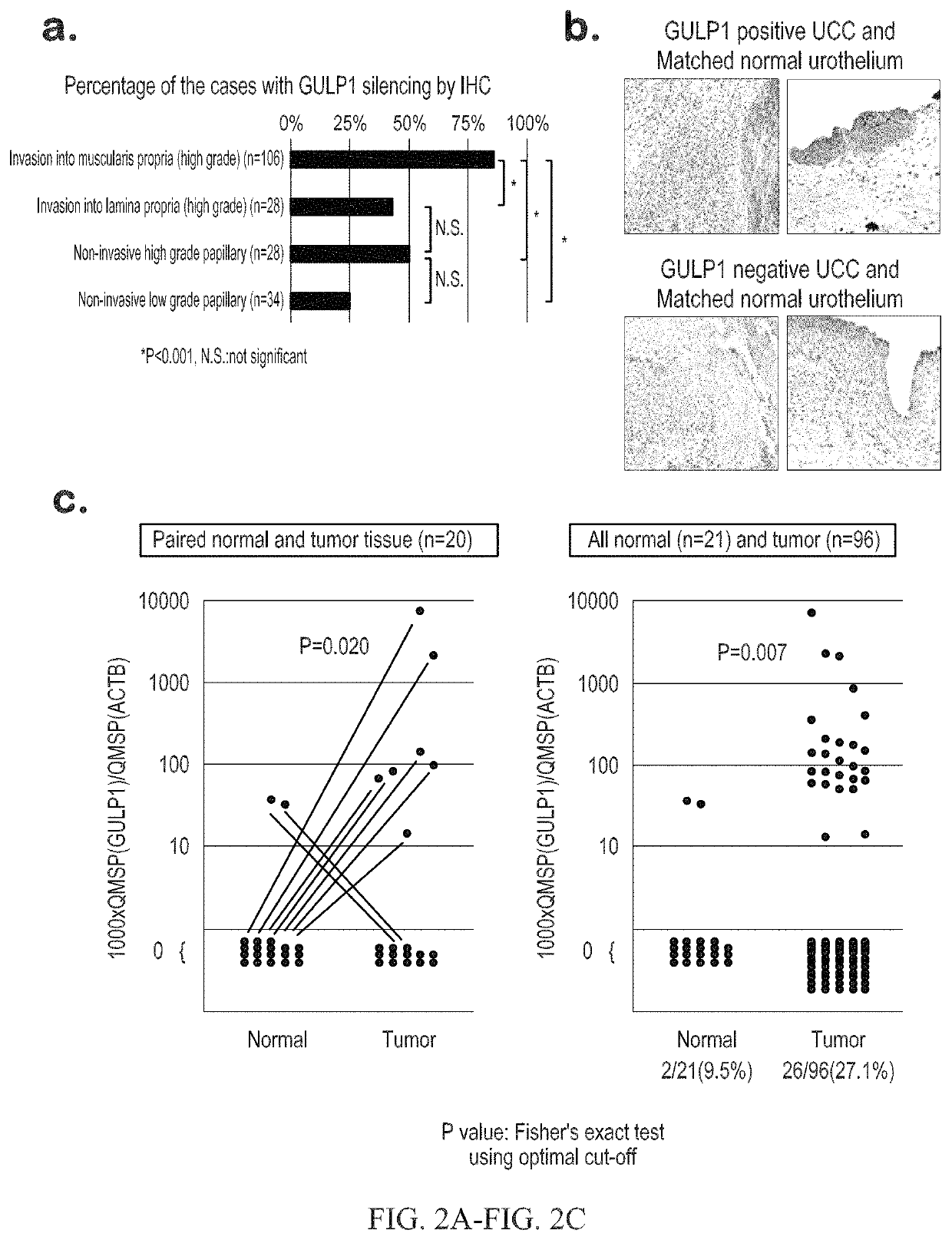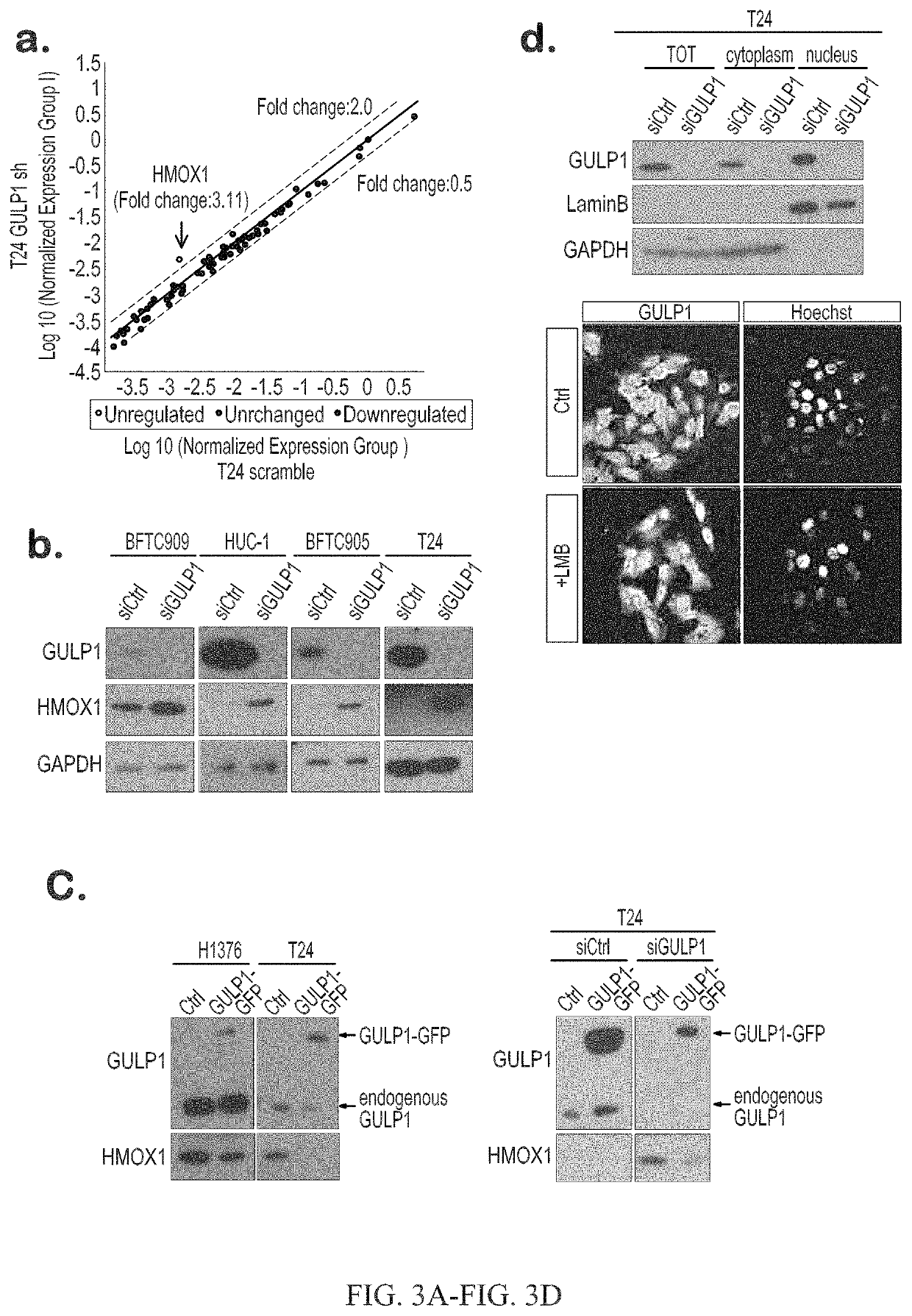Urothelial cancer and methods of detection and targeted therapy
a technology for urothelial cancer and cancer cells, applied in the field of cancer diagnosis and treatment, to achieve the effect of improving symptoms, increasing expression of the gulp1 gene or the regulatory region
- Summary
- Abstract
- Description
- Claims
- Application Information
AI Technical Summary
Benefits of technology
Problems solved by technology
Method used
Image
Examples
example 1
Gulp1 as a Biomarker for Urothelial Carcinoma
[0106]Engulfment gene GULP1 is a functional tumor suppressor through influencing TGF-β pathway and is silenced by promoter methylation in urothelial carcinoma
[0107]GULP1 functions as a cytoplasmic adaptor protein in the engulfment of apoptotic corpses and cells. It was also reported to be an adapter protein of LRP1 which is known to be a key regulator of TGF-β signaling. TGF-β signaling pathway is known to contribute to urothelial carcinoma (UC) development by increasing invasiveness and metastasis, and inducing epithelial to mescenchymal (EMT) transition. By an integrated genetic approach. GULP1 was recently identified as a potential tumor suppressor gene and epigenetically silenced in ovarian cancer. This example provides evidence of promoter methylation of GULP1 in urothelial carcinoma (UC) and provides a functional characterization of GULP1 in urothelial carcinogenesis.
[0108]GULP1 protein expression was first determined by immunohisto...
example 2
Gulp1 Down-Regulation in Urothelial Carcinoma
[0112]GULP1 gene was identified as a potential tumor suppressor gene (TSG) in ovarian cancer. In this example GULP1 expression and promoter methylations analysis was performed in multiple UC samples and biologically characterize GULP1 as a potential tumor suppressor gene. Although there are substantial findings that support GULP1 is involved in tumorigenesis, the role of GULP1 in UC was not known and most importantly the biological function and the pathways associated with GULP1 alterations was not well studied. The findings herein suggest that GULP1 is a UC specific methylated gene and GULP1 inactivation leads to activation of Nrf2 pathway in UC genesis.
[0113]Results
[0114]GULP1 Downregulation is Associated with Promoter Methylation in UC Cell Lines
[0115]GULP1 transcript expression was tested in a panel of 8 UC cell lines (5637, HT-1376, J82, SW780, UM-UC-3, T24, BFTC-905, BFTC-909), one squamous cell carcinoma cell line (Scaber), one tra...
PUM
| Property | Measurement | Unit |
|---|---|---|
| pH | aaaaa | aaaaa |
| volume | aaaaa | aaaaa |
| volume | aaaaa | aaaaa |
Abstract
Description
Claims
Application Information
 Login to View More
Login to View More - R&D Engineer
- R&D Manager
- IP Professional
- Industry Leading Data Capabilities
- Powerful AI technology
- Patent DNA Extraction
Browse by: Latest US Patents, China's latest patents, Technical Efficacy Thesaurus, Application Domain, Technology Topic, Popular Technical Reports.
© 2024 PatSnap. All rights reserved.Legal|Privacy policy|Modern Slavery Act Transparency Statement|Sitemap|About US| Contact US: help@patsnap.com










